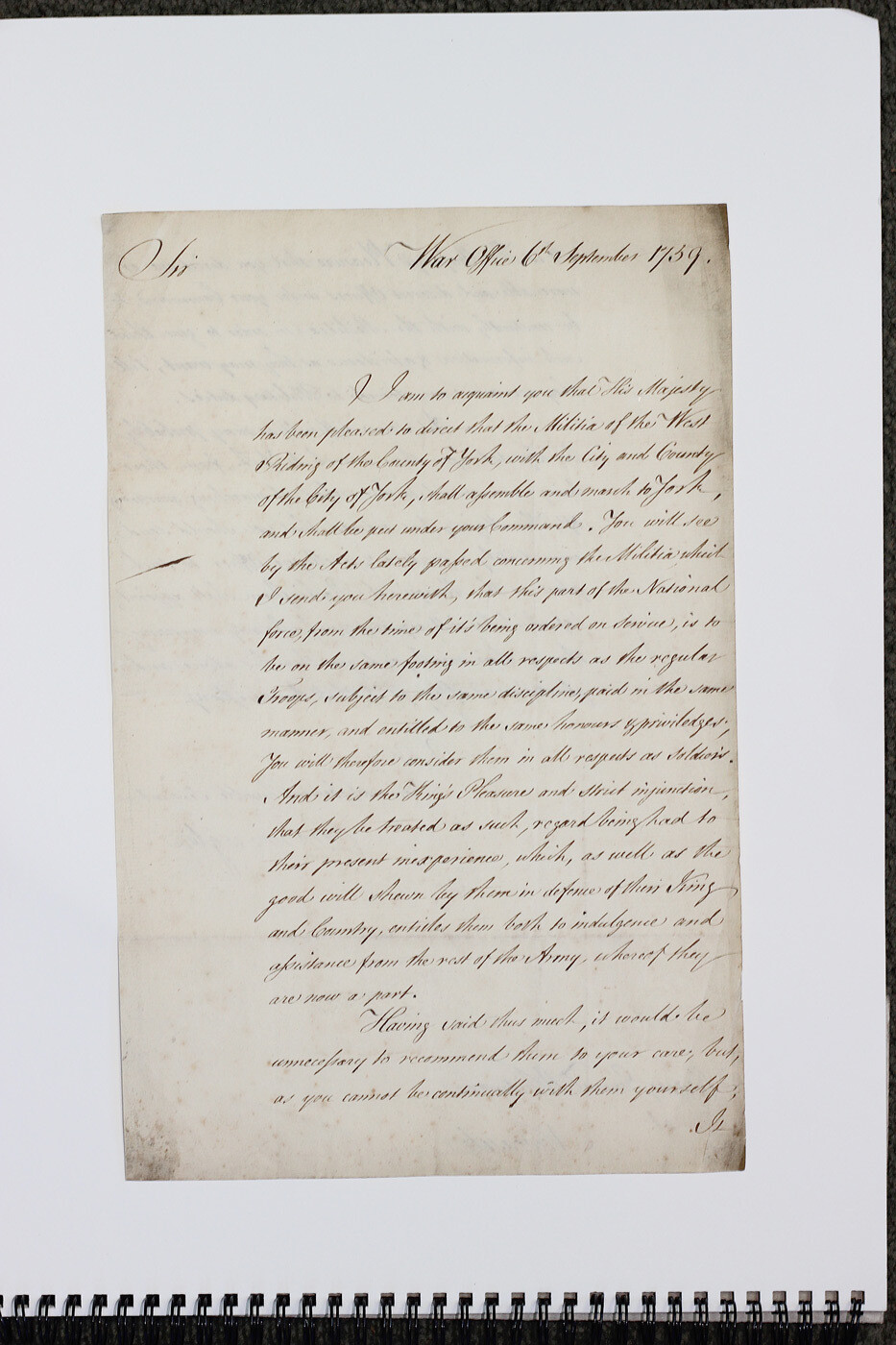
An Original Handwritten from Secretary of War William Barrington, 2nd Viscount Barrington to Major General Whitmore with regards to raising a Militia in the West Riding of Yorkshire.
An Original Handwritten from Secretary of War William Barrington, 2nd Viscount Barrington to Major General Whitmore with regards to raising a Militia in the West Riding of Yorkshire. The long War Office Letter is dated 1759. In goes into long detail about the raising of the militia and how it will function in exactly the same way as a normal standing army. The letter also discusses the appointment of an intelligence officer and to send them to a place appointed by the future Prime Minister the Marquis of Rockingham Charles Watson Wentworth. This letter refers to Barrington’s Militia Acts 1757-762, passed as a response to the threat of a French invasion during the Seven Years' War. Responsibility for raising and organising the force remained at county level, but funding was provided by central government. Officers were to be appointed from among the property-owning class. Men were to be chosen by ballot among the able-bodied men of the parish between the ages of 18 and 50, and would serve for three years. William Wildman Shute Barrington, 2nd Viscount Barrington 1717-1793, was a British politician who sat in the House of Commons for 38 years from 1740 to 1778. He was best known for his two periods as Secretary at War during Britain's involvement in the Seven Years War and American War of Independence. Brigadier-General Edward Whitmore 1691-1761 was a British soldier who served in Europe and North America. He served in the War of the Austrian Succession, and was made lieutenant-colonel of the 36th Regiment of Foot in 1747. He was promoted in July 1757, colonel of the 22nd Regiment of Foot, and next year was made brigadier general. He was at the Siege of Louisburg in 1758, and, after the surrender of the town, was left there as military governor.On a voyage to Boston in December 1761, the ship put into Plymouth, Massachusetts harbour to seek shelter from contrary winds. On 10 December 1761, near Plymouth, Whitmore, going on deck at midnight, accidentally fell overboard and drowned.
